WOMEN SAFEGUARD PEACE & STAND AS THE FAMILY & COMMUNITY STEWARDS FOR DEVELOPMENT
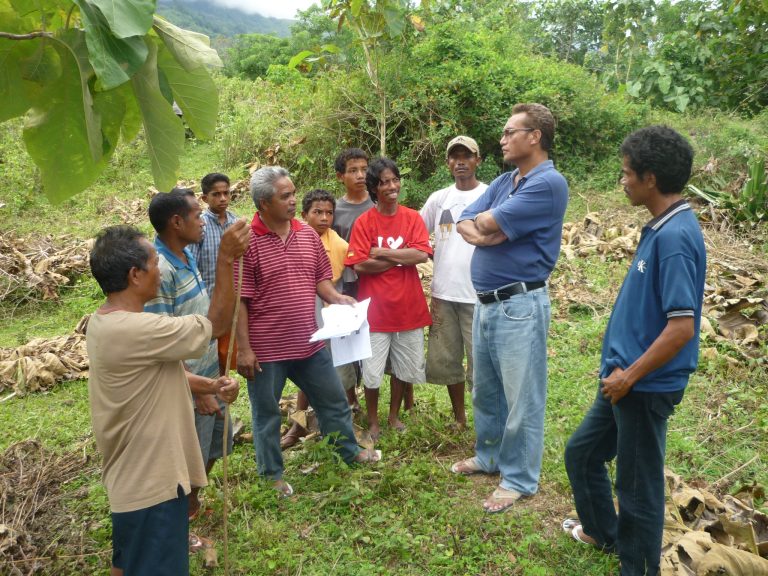
The FPCD has been involved in many projects, but those projects that assist women and children are important because women safeguard peace and stand as the family and community stewards for development. As facilitators of peace, women are the primary custodians, and therefore, for peace to prevail, they require specialized assistance and interventions to transition from fragility and find their pathways to peace.

MATERNITY CLINICS
In 2008, the FPCD inspired the Monaco Red Cross to support a maternity clinic to be built in Samé, Timor-Leste. This landmark project is named the Prince Rainier III Maternity Clinic and has become the model for the government of Timor-Leste’s National Development Plan. The community celebrated the birth of its first two babies born at the clinic during a one-year anniversary. It has significantly improved maternal health access and decreased mortality rates in mothers and newborn children. The partnership with the Government of Timor-Leste Ministry of Health was critical to the success of this clinic. This project is an example of a best practice model for a maternity clinic (with a milestone of 1000 newborns reached in a little over a year).
On the 30-year anniversary of Princess Grace of Monaco’s visit to the Vale do Jamor Timorese refugee camp, the FPCD was pleased to announce plans to construct a second clinic with the help of the Ministry of Health in Timor-Leste. In a short time the Princess Grace Maternity Clinic was completed in Oecusse (old spelling Oecussi) Municipality in 2012. This enclave is the site of the first Portuguese landing in 1515 that resulted in the beginning of active sandalwood trade to Europe.
The Women’s Health and Training Center, Centre de Santé de SAS la Princesse Charlene de Monaco, in Saint-Louis-du-Sud, Haiti, opened in 2017. This was possible due to a generous donation from HSHs Prince Albert II and Princess Charlene on the occasion of the birth of their children. The FPCD, the Monaco Red Cross, the Fondation Sancta Devota, ESKO / EcoSystem, and the St. Luke Foundation for Haiti have joined together to create a lasting, “Monaco-focused” impact in Haiti that fulfills the health-related United Nations Sustainable Development Goals and has served over 1000 patients.
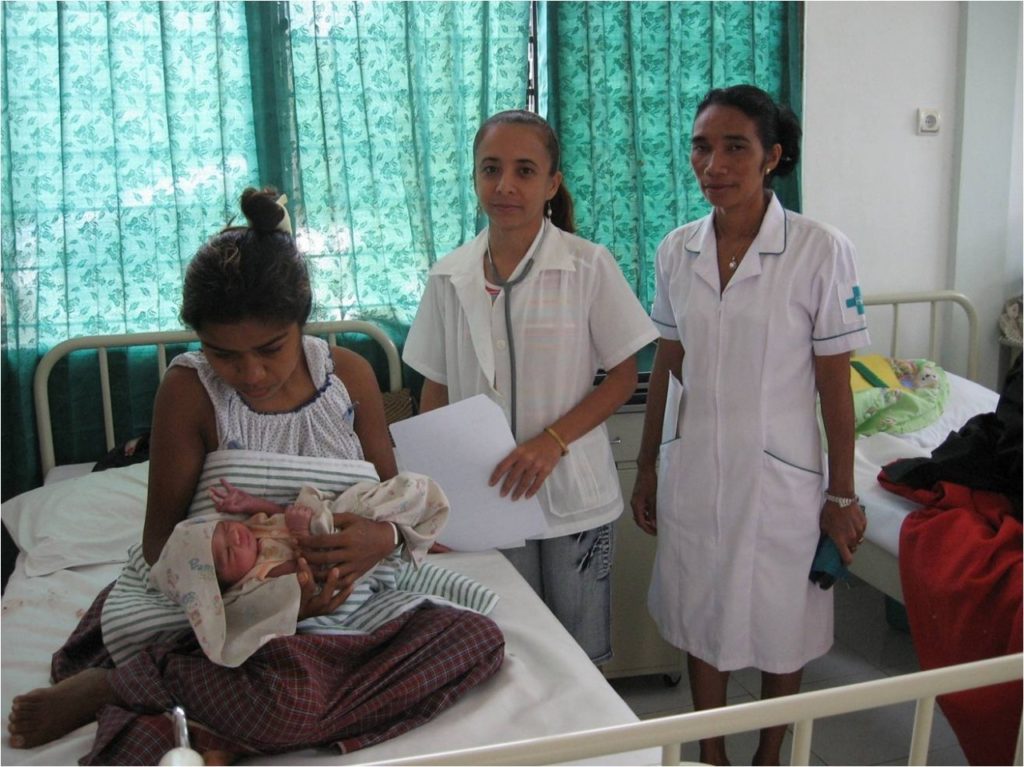
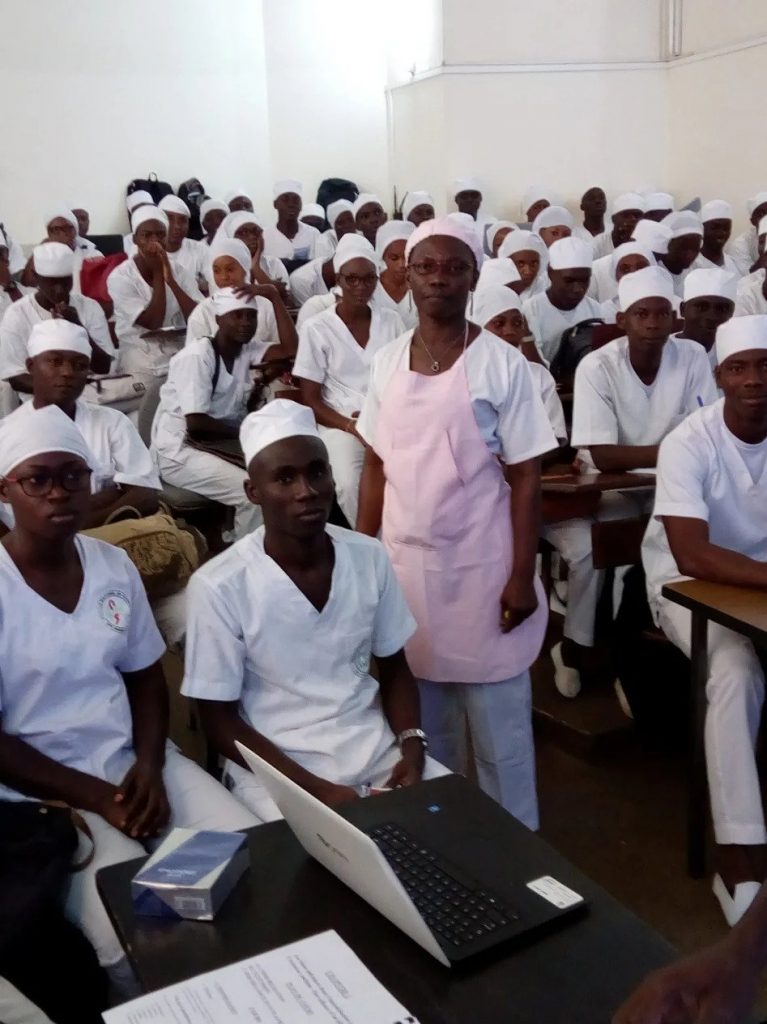

MIDWIFE CAPACITY BUILDING & TRAINING
International Day of the Midwife (May 5th) is commemorated around the world. The day focuses on strengthening the skills and investments in midwifery. The FPCD launched the Midwife Capacity Building Project in Monaco. In post-conflict and fragile communities, midwives are crucial to the success of childbirth and their skills will benefit from advanced training in Monaco. Training included programs from Fight Aids Monaco and Monaco Red Cross. This capacity-building program was facilitated by the Post Conflict Development Association of Monaco, which partnered with the Centre Hospitalier Princesse Grace, the Fondation Sancta Devota, and AMREF.
YOUTH EMPOWERMENT & COMMUNITY CENTERS
The Becora Youth Center, Timor-Leste (funded by United Nations Staff 1% for Development Fund) could not have been built without the help of all the members of Fundação Xanana Gusmão and supplies from the Monaco Peace and Sports Organization. Youth centers serve as an alternative to gang violence through constructive activities. Youth also need role models, such as Sophie Denis, who climbed Mt. Everest in the name of the FPCD.
The Viqueque Youth Center, Timor-Leste was also funded by United Nations Staff 1% for Development Fund. Young people are now able to gather in a safe environment for sports and games, a positive outlet for youthful energy. The first international forum on how sports (2009) can influence peace and development proves that fragile states are wise to invest in their youth.
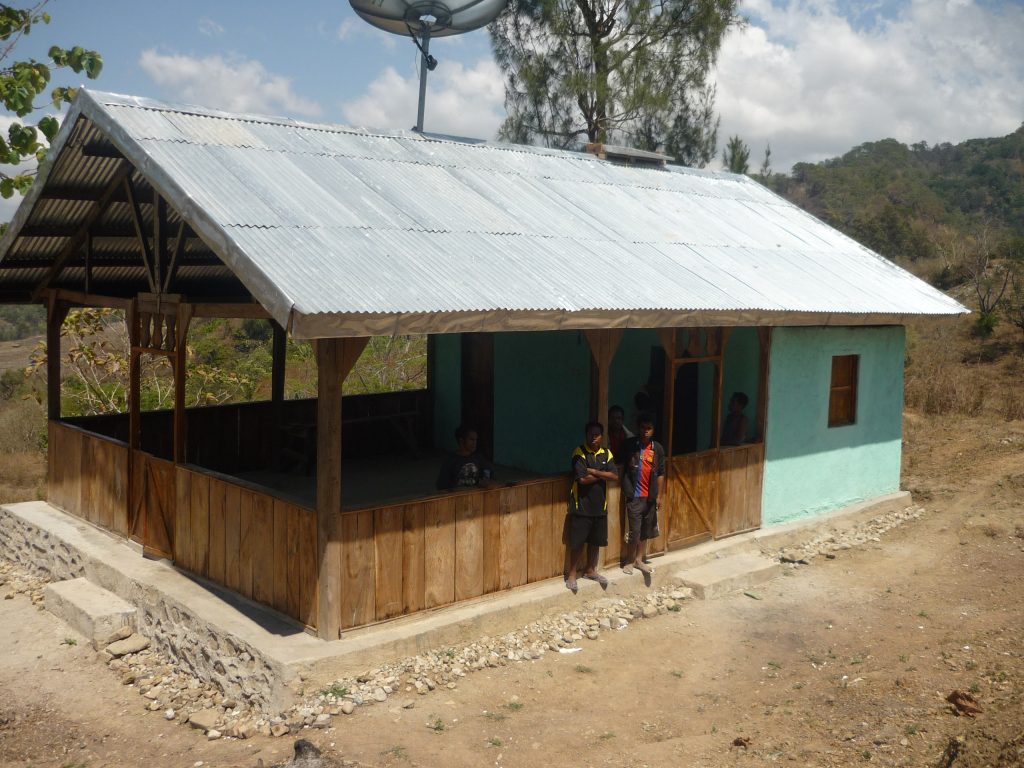

INTERNSHIPS & YOUTH LEADERS
Become a United Nations Intern and Learn Valuable Leadership Skills
The Foundation for Post Conflict Development offers students the opportunity to be involved in an internship and get involved in three core fields of action – development projects, advocacy and education, as defined in the 2021 FPCD Strategic Plan – as well as in its relations with the United Nations. Whether in person in New York or remotely, interns are given the possibility to participate in one or several FPCD projects with significant responsibilities, to attend Foundation’s meetings and to join its UN team. As registered-UN youth representatives of the Foundation, interns are charged with representing the FPCD at the UN Headquarters in New York, participating in UN meetings and reporting on them for the Foundation.
FPCD is proud to support the g7+, 20 fragile and con
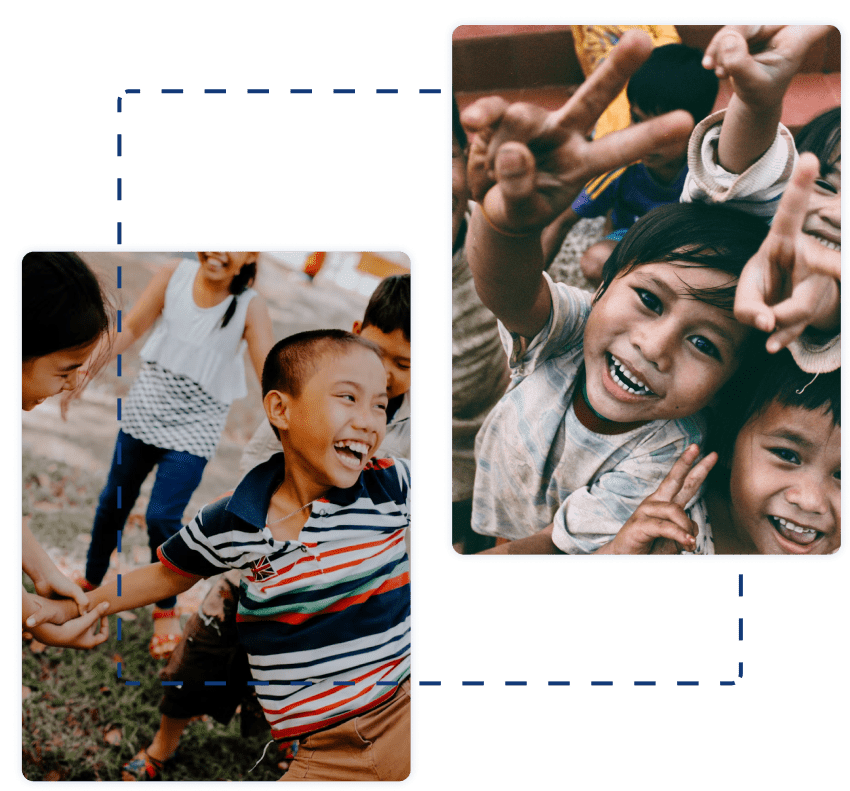
Joining the FPCD as an intern provides valuable insight to learn from development and philanthropy professionals and to discover the activities of a UN-affiliated civil society organization. It is a chance to develop valuable skills in diplomacy, project management and strategic communications. Above all, it offers the possibility to work for a noble cause – raising awareness on development in conflict-affected regions and contributing to concrete projects facilitating it – and to experience the importance of civil society as an actor in international relations.

Background on the FPCD and the United Nations Internship Program
Who are we?
The Foundation for Post Conflict Development is a New York-based 501(c)(3) non-profit organization working towards development in conflict-affected regions through many avenues including women and youth empowerment projects. Since 2005, the FPCD has implemented a variety of projects in Haiti, Ivory Coast and Timor-Leste. As a UN-affiliated organization, the FPCD is committed to supporting the Sustainable Development Goals and maintaining a presence at the UN Headquarters in New York City.
What will my role as an FPCD Intern be like?
The FPCD internship program is two-fold: representing the Foundation at the United Nations and supporting ongoing FPCD projects. Reporting directly to the CEO and Chairwoman, interns are an integral part of the FPCD’s mission to promote the SDGs.
Responsibilities and Tasks:
• Attend meetings at the UNHQ and report back to the Foundation.
• Participate in the FPCD’s projects (tasks to be chosen within the first two weeks of internship, depending on our current
priorities).
• Write meeting summaries and research reports for the Foundation’s newsletter.
• Ensure the social media presence of the Foundation.
Qualifications:
Students in International Relations, Political Science or any other related fields. Knowledge of the United Nations system and strong interpersonal skills. Fluency in English is required. Knowledge of any other language will be considered an asset.
What do we offer?
This internship is a great opportunity to discover the action of NGOs at the United Nations. It is also an opportunity to be exposed to the United Nations workings and learn more about current world issues. As an FPCD intern you will be given the chance to network with diplomats, UN employees, and civil society professionals. Depending on your additional projects, you may also learn project management, public relations, writing, communications, and other important skills.
How to Apply:
Please send a resume, three letters of recommendations (1 personal, 1 professional, and 1 character reference). Include a cover letter explaining why you want to work with the FPCD; a statement of interest. Include what makes you a good fit for our organization and what would like to do for the Foundation.
Send information to: info@fpcd.dance / for questions: +1 646-331-9638 (GMT -8)



PRINCE ALBERT II LEADERSHIP IN POST CONFLICT DEVELOPMENT AWARD
The FPCD inaugurated The Prince Albert II of Monaco Leadership in Post Conflict Development Award in 2019, recognizing candidates that demonstrate leadership potential and interest in the work of international diplomacy, peacebuilding, state-building, and sustainable development. The award was created to empower young leaders, all originating from different regions and social, economic, religious, and political contexts. The FPCD worked with the governments of Timor-Leste and Monaco to identify the winners because who better than the countries themselves to know who their future leaders are.
We brought these young leaders together within the professional setting of the United Nations system where complex global challenges can be addressed. The awardees worked together to explore innovative solutions, deepen understanding, share perspectives, and align those principles and values while respecting the differences that highlight cultural diversity.
INSTITUTE FOR POST CONFLICT DEVELOPMENT
This project focuses on sharing snapshots of pathways to peace by those who have led them and those willing to share them. The online institute aims to modernize development for the next generation through a platform that shares the successes and challenges of peacebuilding and state-building via video. In addition, we will host online debates to create a library of resources.
VETERANS
The FPCD has raised awareness about the construction of the Timorese Resistance Archive and Museum, established in 2005 in Dili. The museum aims to preserve Timor-Leste’s national historical heritage and to show and celebrate the resistance struggle undertaken by the people of Timor-Leste. The museum has a permanent exhibition, which gives an overview of the Timorese resistance struggle, including its leaders, its key moments, and the role of young people. The museum plays an active role in the community, working to promote and sponsor cultural and educational events that preserve records and memories of the struggle, show acknowledgement of, and appreciation for veterans, confirm national unity and identity, encourage the study of Timor-Leste’s contemporary history, and recognize the steps taken in achieving peace. The museum also periodically features temporary exhibitions which promote further research and understanding of specific aspects of Timorese history.
ENVIRONMENT
The FPCD oversees two separate environmental projects in Timor-Leste. The first, the Reforestation and Family Income / Community Development Project, funded by the Government of Monaco, takes place in the mountainous municipality of Ermera. It is an integrated program that addresses global health from a nutritional angle by creating kitchen gardens, diversification of food crops, fishponds, chicken coops, coffee plantations, and shade trees so that families can have a stable source of both food and income, all while making a positive impact on the environment.
In addition, this project has seen the reforestation of over 66 hectares of land, and the building of water sanitation pumps, public water taps, and public wash houses and toilets in communities throughout Ermera. For community members that once had to walk many kilometers for access to water, these sanitation pumps and public wash houses have greatly improved the lives of those living in Ermera; the hub of this project is the Bakhita Center.
Our second project, supported by the Prince Albert II Foundation, is the Sandalwood Park and Environmental Center, which is currently under construction in Lifau, Oecussi, Timor-Leste. This project supports the revival of sandalwood, demonstrates the benefits of reforestation, fosters the development of forest-based industry, creates wealth, promotes tourism, and educates about sound environmental practice and skills. There is a continued need to preserve the wisdom of local communities and to develop agroforestry projects.
SCIENCE TRAINING & EXPLORATION
Beginning in 2009, FPCD International Advisory Board Member Dr. Hinrich Kaiser began to conduct field research in Timor-Leste involving students from his home institution, Victor Valley College in Victorville, California, USA, Philipps-University in Marburg, Germany, and the Universidade National Timor-Lorosa’e (UNTL). The Tropical Research Initiative of Victor Valley College, later co-directed by Prof. Mark O’Shea from the University of Wolverhampton, United Kingdom, not only conducted the first coordinated amphibian and reptile survey of all municipalities in Timor-Leste, including Ataúro and Jaco Islands, it provided thesis projects for the UNTL and German students, promoted capacity-building among the many local residents they encountered and involved, gave significant exposure to Timor-Leste’s amphibian and reptile diversity (culminating in 24 publications so far), and led to the development of the country’s first new post-independence postage stamps, depicting spectacular examples of Timor-Leste’s reptile and amphibian fauna to commemorate 2010 as the Year of Biodiversity. Creating an awareness among American and German students of life in a country most had not even heard of before embarking on their adventurous trips had a truly eye-opening effect about what life in a developing country feels like. To the Timorese students, the international friendships resulted in ongoing communication and banter over social media, opening a window out of island life.
